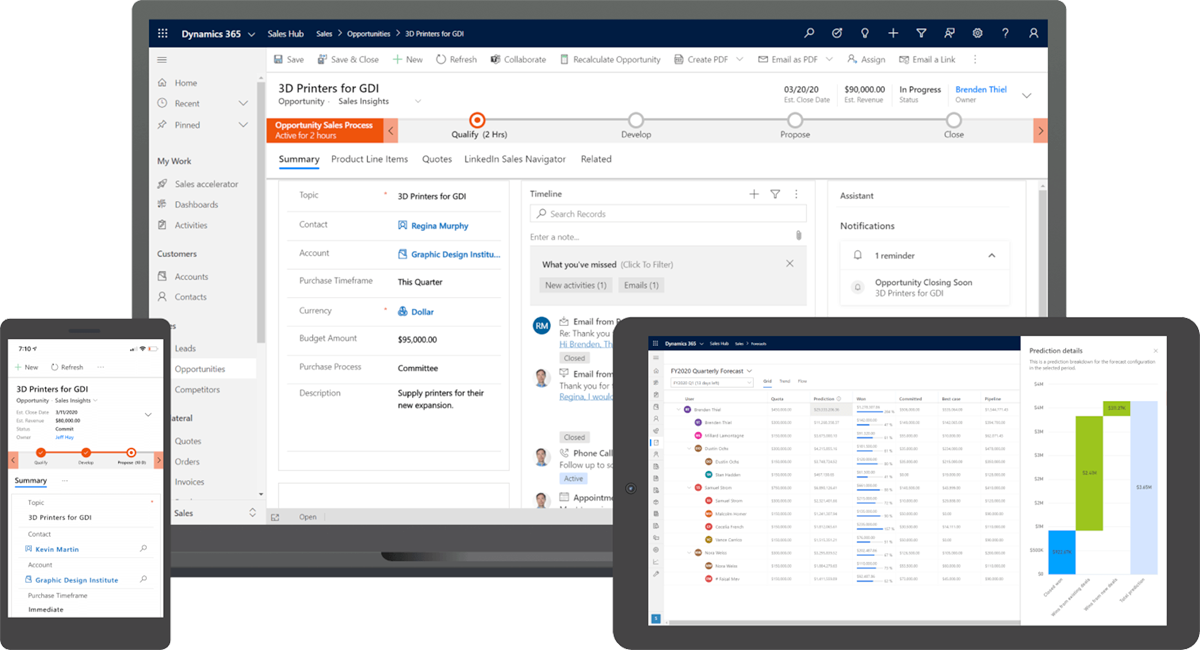Embarking on your Dynamics 365 journey doesn't need to be overwhelming or worrisome. As seasoned Office 365 experts, we've witnessed the pitfalls of rushing into its extensive capabilities - from sales optimization to finance and retail operations. Our approach? A gradual, strategic implementation.

Begin with Sales & Service:
Most businesses find immediate value in Dynamics' sales and service modules. They streamline critical processes like prospecting, quoting, and fulfillment. Seamlessly integrate your CRM with popular accounting systems like QuickBooks or Dynamics GP, or opt for custom integrations via the Dynamics API for more complex needs.
Elevate with Field Service & Project Service Automation:
Once the foundation is set, delve into Field Service and Project Service Automation. These modules cater to specific needs like on-site service scheduling and project management, enhancing efficiency and customer satisfaction.
Advance to Finance & Operations:
The final piece involves integrating the Finance and Operations app. This module is key for linking financial insights to business operations, fostering resource optimization, regulatory compliance, and strategic decision-making.
By pacing your Dynamics 365 adoption, you ensure a smooth transition for your team, encouraging buy-in and easing the learning curve. At Aerie, we will work with you to ensure your CRM not only works efficiently but that your team uses it efficiently and effectively. We not only build a custom CRM, specific to your business, but we will also train your employees on how to use it. Wondering about Dynamics 365 costs? Let's explore how this robust platform can revolutionize your business operations.
Share

